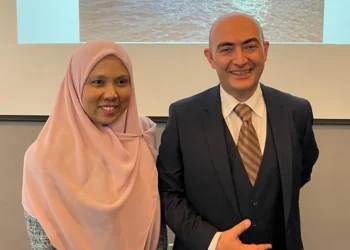 With the new theater season getting nearer, the government seems to have given up on its plan to privatize state-funded theaters, a topic of heated debate last spring.
With the new theater season getting nearer, the government seems to have given up on its plan to privatize state-funded theaters, a topic of heated debate last spring.
But the repertoire of state theaters — which are under the direction of the Ministry of Culture and Tourism – is to come under stricter supervision from the ministry. “We will keep our theater houses, but we will run them in a more careful and productive way,” Minister of Culture and Tourism Eruğrul Günay has said.
Some plays staged by state-owned theaters in the past have been criticized for failing to pay due respect to audience sensitivities, causing Prime Minister Recep Tayyip Erdoğan to announce in April that the government planned to privatize state-run theaters. This announcement has meant increased caution on the part of the Ministry of Culture and Tourism in terms of the scripts it allows to be staged. “We are conducting a serious review of our repertoire. I’ll also have a look at it in the following days,” Günay said, speaking to Today’s Zaman, accompanying the minister during his visit to Bitlis and Van on Tuesday.
Noting that the government has always taken up the issue of privatization of state-run theaters in the context of autonomy and liberalization, Günay said, “If we are, as the Turkish state, allocating financial resources to art, then art should be performed for the sake of the people, and not for the sake of art.” According to the minister, a state-funded play should also have a didactic, lyric and epic character to it, while at the same time promoting peace and not sowing seeds of hatred among people and being a valuable piece of literature. “That’s all we are after,” Günay stated.
One of main reasons for the government canceling plans to privatize state-run theaters is probably that state ownership keeps ticket prices low — as little as TL 5. In some years, up to 1 million people attend plays presented by such theaters free of charge. “It’s not possible to do this with private theaters,” the minister noted.
The Ministry of Culture and Tourism has been working on a new draft law since 2009 concerning state theaters, aiming to increase their productivity on a performance-based model. “When the project develops into a concrete form, I’ll share it with the public,” Günay said.
But autonomy in the selection of plays to be staged and in their management is an area in which the ruling Justice and Development Party (AK Party) government and those involved in state theater disagree. While actors, directors and others involved in the staging of plays are generally of the opinion that there should be no bureaucratic interference, the government insists on having a say. “If it’s the state which gives the money, then no absolute autonomy is possible,” the minister remarked. However, he went on to say, “Theater is one of the areas where state intervention is minimal,” noting that it is an artistic committee, largely composed of actors, that finally decides which plays will be staged.
High cost has been another issue in the discussion surrounding state-funded theaters. In a debate that took place in Parliament in May, Ayşenur İslam of the AK Party argued that private theaters and film projects contributed in a much greater way to cultural activities than state theaters. “The state spent 40 times more last year [on state theater performances] than if it chose instead to give financial support to private theaters for the same number of theatrical performances,” İslam said.
In 2011, the General Directorate of State Theaters — with a budget of TL 140 million, excluding box office revenue — staged 5,800 theatrical performances, whereas the 162 private theaters, which received financial support of TL 3.5 million from the Ministry of Culture and Tourism, staged nearly 4,000 performances.














